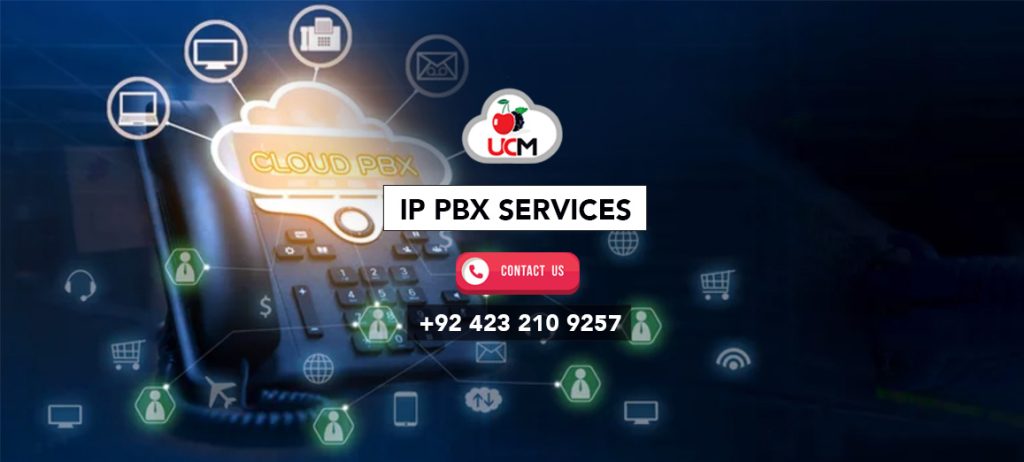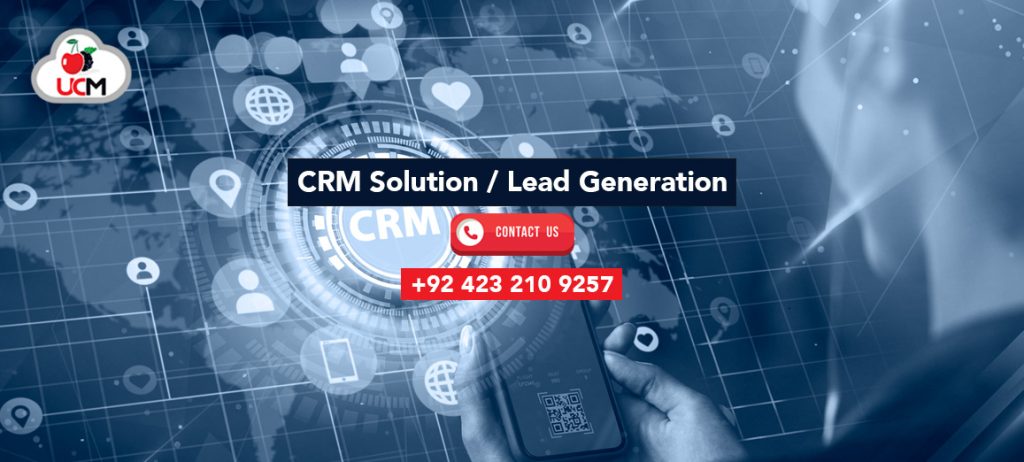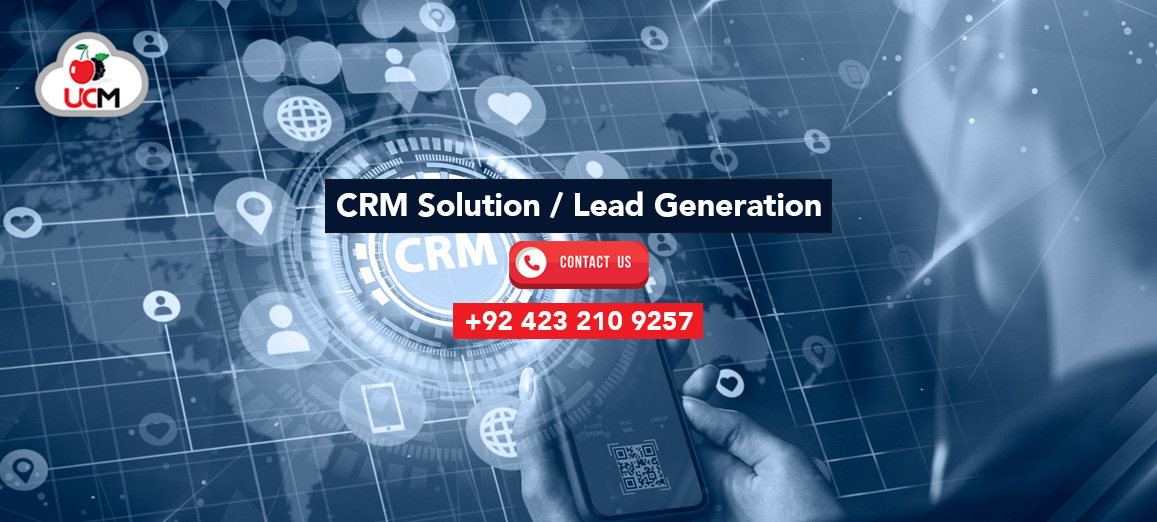Transforming Customer Satisfaction with Advanced Inbound Call Center Solutions
Why Are Inbound Call Center Solutions Important?
The major challenge for enterprises today is to keep customers satisfied and happy. This endeavor can only be achieved by providing a top-notch customer service experience. Customer experience can make or break a brand’s reputation making it essential for companies to know how their customer feels about their services and nurture positive relationships to boost loyalty. Inbound Call Center Solutions have transformed how companies meet ever-growing customer expectations. This frontline technology as the backbone of any call center ensures high-end customer satisfaction and loyalty, let’s learn how.
Evolution of Inbound Call Center Solutions
Inbound call centres were developed with the sole purpose of addressing customer issues and complaints effectively. However, the approach has shifted towards a role that deals with revenue generation and customer retention. Today, inbound call centers have gone beyond the traditional system by integrating AI-driven tools, CRM solutions, and omnichannel platforms to provide seamless and contextually relevant customer service interactions. Though inbound services are considered reactive and outbound call centers are known for proactive customer engagement, outbound calling campaigns provide priceless customer insights to upgrade the inbound call center operations.
What Service Does Inbound Call Center Offer?
1. Customer Service & Support
It is the central point of any inbound call center service, including resolving issues, responding to customer inquiries, handling complaints, and providing service and product information. The main goal is to ensure high-quality customer support to boost loyalty and customer satisfaction and drive growth and profitability.
2. Technical Support
Inbound call centres also help customers facing technical issues and offer technical support related to products and services, specifically IT and software problems. Some common issues include diagnosing, troubleshooting, product usage guidance, assistance in upgrades and installation, and solving technical issues.
3. Order Processing & Management
These services also help companies manage orders, such as payment processing and completion. They also cover order placing and final product or service delivery. Just think about the restaurant business. Managing call orders during peak hours can lead to losing a sales opportunity. However, they can manage everything by partnering with inbound services.
4. Help Desk Services
Inbound teams, especially help desk agents, offer specialized assistance and support to employees and customers. For instance, they provide step-by-step support to common problems, answer frequently asked questions, and offer details of processes.
5. Emergency & Crisis Management Services
Several service-oriented businesses like saloons, healthcare, and banks need to provide immediate responses to their customer queries. They can outsource their inbound calling operations to inbound service providers or leverage inbound solutions to provide immediate assistance or support.
6. Omnichannel Support
Advanced inbound services have evolved from managing simple phone calls to handling customer interactions across various communication channels including social media, live chat, email, and SMS. It facilitates customers to connect with a business in their preferred communication mode.
7. Inbound Sales
Once your customer issues are resolved, customer service agents can also upsell or cross-sell customers on other products and services. They can turn the prospects inquiring about products into paying customers. Moreover, agents can convince existing customers to upgrade their current subscription plan.
Important Features of Inbound Software System
Technological advancement, especially artificial intelligence and automation in inbound solutions has transformed how inbound call centers work. Interactive voice response systems (Al) can manage simple customer issues, and route calls to relevant agents, extensions, or departments. This technology can even resolve issues without human interference. Likewise, chatbots can provide around-the-clock support, reduce wait times, and improve customer satisfaction levels. Let’s take a look at some important features that are revolutionizing the inbound operations.
1. Automatic Call Distribution
Every call center software contains an automatic call distribution system that works following predefined criteria. ACD systems automate the call routing enabling skilled-based routing to route incoming calls to the most relevant department and agent for better resolution.
2. Call Recording
Another important feature of inbound call center systems is call recording capabilities. Businesses can record customer calls to manage customer service efficiently and maintain service quality. They can review the recorded conservation to assess coaching needs and make informed decisions.
3. Call Routing
Inbound calling software is capable of handling routing operations on inbound calls. The system can route calls to the most skilled agents based on different criteria and save customers time.
4. Customer Callback
This feature allows customers to choose the time they are free to receive callbacks instead of waiting in call queues and long holds. The system automatically assigns the scheduled callback to the agent following pre-set criteria.
5. Call Queues
It places all inbound calls in queues based on their responses to the IVR menu. Customers can wait in queues for their turn until customer service agents become available to receive the call. On the other hand, clients can also request a callback to save their valuable time. Businesses can play music or customized announcements depicting their brand image while customers are in queue to engage them.
6. Call Forwarding
Agents can benefit from call forwarding features to direct callers to internal and external extensions without disconnecting the caller. In case of non-availability of agents, they can set that incoming calls are automatically forwarded to other extensions.
7. IVR Technology
Call centers can lower their agent load and keep customers satisfied instead of keeping them waiting in long queues through interactive voice response technology. They can create and customize IVR systems to depict their brand image. Customers can self-service simple issues instead of waiting in long queues or routing themselves to live agents to resolve complex problems.
8. CRM integrations
A general inbound software offers CRM integration while cloud-based solutions offer countless integrations with other business tools and apps. For instance, CRM integration provides valuable customer data to your agent during interaction. They can use this information to provide personalized services and satisfy customer needs.
9. Performance Monitoring & Tracking
Monitoring of services is crucial to ensure service quality and improve performance. Inbound calling software offers call monitoring and tracking features in real-time. This gives companies insights into their customer care agents’ performance and where changes are required.
10. Analytics & Reports
Good call center software provides detailed reports about calling operations and agent performance. Companies can use these analytics such as call volume, call abandonment rate, wait time, and call length to make actionable decisions.
11. Computer Telephony Integration
Many call center systems offer CTI facilities, which connect the phone to a computer. It is an efficient way to convert your computer into a virtual system. You can easily integrate it in a few clicks to process your work.
Which Technologies Are Transforming the Future of Inbound Call Centers?
The increasing demand for inbound call center systems encourages companies to invest in the latest solutions for enhanced efficiency, and workforce optimization and achieve their inbound campaign goals. Digital engagement solutions and omnichannel communication are the latest trends in the field. Here are a few technological innovations defining the future of Virtual inbound call center services.
Voice Assistants & Chatbots
AI-powered voice assistants and virtual assistants are great examples of conversational AI, invented to automate the task of assisting customers. They provide answers to all frequently asked questions and guidance for actions such as payment clearance and balance inquiries. Moreover, chatbots can easily integrate with messaging tools of inbound software and can assist in simple actions. Furthermore, these innovations are a great way to automate customer-related tasks and resolve customer concerns easily.
Sentiment Analysis & Recognition
AI-powered sentimental analysis is very useful for inbound call centers. It lets teams and administration understand nonverbal signals from voice and facial analysis and identify their sentiments. Considering these insights, call centers can offer training sessions for agents to help them learn about their common mistakes and customer expectations. In the future, it will become more advanced.
Voice Authentication & Biometrics
Agents have to perform several confidential tasks in inbound call centers such as retrieving existing bank account balances. They need to verify the customers to complete this task. Thus, inbound call centers ensure secure information processes and protect transactions. Meanwhile, two-way authentication and voice biometrics are other digital methods to verify customer details. It enhanced customer security and trust in services.
Digital Engagement Solutions
The latest inbound call center software facilitates omnichannel communication including digital engagement channels such as Twitter, WhatsApp, Facebook, LinkedIn and more. These solutions engage customers and contain fundamental features like templates, auto-replies etc. Modern companies are making several innovations in this regard so more engagement tools are expected to come for enhanced customer care.
Cloud-Based Solutions
They have been in the market for a long time and offer secure access to inbound solutions to facilitate remote teams. Even administration can manage their inbound call center operations from remote locations. Moreover, cloud solutions are highly flexible and scalable allowing companies to manage their inbound campaigns’ dynamic needs easily. They also offer countless integrations, lower operational costs in terms of hardware and allow employing professionals from a global talent pool.
VR & AR Implementation
Other technologies shaping the future of the inbound call center industry are augmented reality and virtual reality. They offer more engaging and intuitive experiences to clients. For instance, call center agents can use this technology to give virtual tours of the products and services to the clients.
Top Reasons to Consider Inbound Call Center Solutions
Inbound call center management can be challenging during peak hours but leveraging inbound solutions can help you achieve your desired outcomes. Let’s find out some important benefits of this technology for companies.
(i) Improves Customer Service Experience
Most inbound callers seek guidance about products and services therefore it is essential to maintain a high customer satisfaction level to keep them intact. Nobody likes to wait on hold for long or to be transferred from agent to agent, repeating issues or conversations with no clear answer. The inbound call center system contains innovative tools to streamline customer service. For instance, IVR systems allow them to resolve their simple issues themselves or route them to the most suitable agent or department for technical issues. Likewise, CRM integration helps teams in delivering personalized experiences.
(ii) Enhanced Workforce Optimization
The benefits of call center software are not limited to customers but companies can also make workforce management easier. It helps in reducing downtime and long wait times without adding extra pressure on your teams during peak hours. Likewise, they can monitor agent performance to keep them up to the standard. Managers and supervisors can use tools to assist agents during calls to help them service the customers.
(iii) Increase Employee Flexibility
Cloud call center solutions do not limit teams to a single office premises. They give your employees and teams more flexibility to work from home and anywhere through an internet connection. Their physical presence is not necessary, they can receive incoming calls on their device using the business number and help customers with their issues.
(iv) Boost Customer Loyalty
When companies offer quick and efficient support to their inbound customers and prefer customer satisfaction, this creates a positive customer service experience, boosting loyalty. Customers satisfied with a business’s service level can become repeat customers, increasing sales and productivity.
(v) Cost-Effective Support
Cloud inbound solutions are cost-efficient options for companies as you only pay for the features or services you need. They are particularly the best option for companies with limited resources to invest in in-house call centers. Similarly, it also gives your employees the freedom to work from anywhere saving their commuting costs.
(vi) Increases Efficiency & Productivity
Call center systems automate various routine tasks reducing the burden on support agents. For instance, customers can get the answers to their simple queries from IVR during peak hours. They can also schedule callbacks to reduce wait time. Agents can handle incoming calls more efficiently and personally to satisfy customer needs and lower the call abandonment ratio.
Final Thoughts
Efficient customer experience is essential in today’s digital age to boost satisfaction and loyalty. Leveraging Inbound Call Center Solutions in Lahore can help you deliver top-notch services to prospects and existing clients and satisfy their dynamic needs. If you need assistance getting the right solution for your call center, contact CherryBerry UCM without hesitating for expert suggestions and the right technology to outshine competitors.
Top 8 Benefits of Choosing Cloud-Based PBX for Your Business
Why Invest in Cloud-Based PBX?
On-premises telephone systems have been the fine solution for a long time when the workforce was limited to the office despite maintenance burden and expensive hardware. However, things took a sudden turn after the COVID-19 pandemic, and businesses faced communication challenges that involved the future of work supporting a hybrid and distributed workforce. Today, they need agile, flexible, and scalable solutions to meet their evolving business needs, increasing the importance of Cloud-Based PBX in facilitating a remote workforce. This advanced business communication system allows employees to communicate and collaborate easily, regardless of where they are. Here are the basics of this advanced phone system and its advantages for your business.
Understanding the Importance of Cloud-Based PBX
It is the advanced form of private branch exchange system that exists at the physical location of a business. This virtual version of traditional PBX is hosted through the cloud through voice-over-internet protocol to make and receive calls. The traditional legacy system needs an expert IT team to maintain on-site hardware and well-developed infrastructure to manage incoming and outgoing business communication. However, the PSTN network route calls using an internet connection in an advanced virtual telephone system, hosted in remote and secure data centers. Businesses no longer need to install hardwired phone lines or invest in costly onsite hardware, as your teams can place and receive calls on any device, improving communication and streamlining lead generation efforts.
How Does a Virtual PBX System Work?
Legacy systems were operated through exposed wiring panels, plugged into the sockets to create connections to the phone lines. Today’s phone systems contain compact-sized circuit boards to route calls and establish connections. More advanced virtual PBX systems that also sometimes refer to hosted PBX manage call routing online. They convert analog signals into digital ones to transmit voice data. Moreover, besides voice calling, cloud systems also support video conferencing to promote collaboration among in-house and remote teams. Your teams can manage business communication anywhere using internet-connected devices or softphones.
What are the Different Kinds of PBX Systems?
1. Legacy Systems
These landline and hardwired business telephone systems depend on physical hardware with bulky phone lines distributed in your office space and connected with a PBX box. This setup is sufficient for small companies but cannot fulfill the needs of large companies operating through various locations. Moreover, sufficient office space is needed to place the hardware, which can wear and tear over time. Meanwhile, an expert IT team must manage updates and maintenance. However, they give you full control of your business data.
2. On-Premises IP PBX
They use SIP trunks and an internet connection to handle business interaction. On-site PBX systems are also famous as VoIP phone systems that use existing internet connection and bandwidth. Instead of using traditional telephones, they use Ethernet cables to connect the phones. These phone systems offer better call quality, video calling, mobile integration, voicemail to email, call routing, and disaster recovery features. All infrastructure is managed onsite so companies get maximum control of their business data.
3. Cloud/Virtual PBX Systems
Sometimes called hosted systems, virtual PBX phone systems are an efficient way to manage and route inbound and outbound calls. These systems are effortless to set up, so companies can connect their devices to the internet and route calls online. They only need an excellent internet connection, a softphone, or a device to manage business communication. In addition, cloud phone systems are an ideal choice for a geographically distributed workforce so companies can benefit from the expertise of the global talent pool. Another important thing that increases the importance of virtual PBX is that you don’t need any hardware, so initial costs are lower, making it an economical option.
How to Find the Right PBX System To Address Your Communication Needs?
Having the right PBX phone system for your business communication that aligns with your goals can help you achieve targets faster, improve collaboration, and keep all involved in the process satisfied. While investing in an advanced business phone system, consider a few things.
1. Assess the Performance of Your Existing Phone System
If a business already has a PBX system, it is important to assess the existing system’s performance before establishing a new one. Additionally, companies can invest in hybrid models to benefit from their existing systems, which use VoIP with other advanced features. Cloud or virtual PBX phones are ideal for small enterprises with limited users or those looking to grow, scale, or expand. However, if you are starting from scratch, a hosted phone system is highly suggested.
2. Ensure Efficient Customer Support
First-time users of a PBX system should choose the one that offers an excellent customer service experience. Your employees will be accustomed to the system and different tools with time. The highly responsive customer service experience will increase your client’s trust in your services. Moreover, enhanced collaboration among your team members can also keep them on the same page about customers and business concerns.
3. Check Scalability & Flexibility
Today, companies are switching to cloud solutions that facilitate remote working. Thus, invest in a cloud/virtual system that your teams can access anytime and anywhere. Moreover, select the system that scales with your dynamic business needs or can be accessed through softphones, desktop phones, or any device.
4. Assess The System Costs
Legacy systems are costly investments as companies should have hardware and setup costs. Hosted or cloud systems are cost-efficient because they do not require much physical hardware. So, they are efficient solutions for companies with low budgets or looking for enhanced scalability and flexibility.
5. Choose A Reliable Service Provider
Another important thing is selecting a Reliable cloud service provider. Companies should consider customer reviews, reputation, customer support, ease of integration, and pricing while collaborating with a service provider. Partnering with a secure and reliable service ensures efficient business communication. Companies should ensure that service providers offer updates and maintenance facilities and ensure business data security.
Top 8 Advantages of Cloud-Based PBX for Your Business
1. Easy to Install & Set up
One of the biggest benefits of cloud-based PBX is that companies can easily install the system without the help of an expert IT team. Meanwhile, it is easily manageable even if your employees with little networking knowledge can set up the system. Enterprises can add new users within a few clicks and keep the business functional round the clock. Moreover, you do not need extra setup costs as the system uses cloud technology that works without complex hardware setups. In many conditions, companies can also connect the cloud-based PBX with existing phone systems.
2. Almost No Maintenance Costs Required
Traditional systems contain on-site hardware, so it demand special maintenance and an expert team to fix issues. However, the situation is different with advanced PBX solutions because your service provider is responsible for updates and maintenance. Businesses with high call volumes can make a lot of calls and manage complex call routing needs within a short time. In short, cloud-based phone systems are cheaper and easier to maintain and operate than on-premises PBX systems.
3. Highly Flexible & Smooth System
Another benefit of virtual or cloud phone systems is their integration capabilities. The system gives you better visibility of your business data, enabling you to understand how sales and marketing strategies affect the caller’s behavior and ensure better call flow. Additionally, automatic call recording, voice-to-email transcription, and multi-device pickup help companies run their operations smoothly, improve workflows, and provide unified communication. Your service provider ensures your cloud-based phone system runs smoothly, and they fix all issues immediately if anything goes wrong.
4. Scalability Helps Your Business Focus on Core Aspect
Companies stressed about a scalable business phone system should opt for cloud-based solutions. This is because companies can easily add or remove phone numbers, users, and extensions, considering their dynamic call volume. Moreover, hosted service providers are responsible for the maintenance of phone systems. This gives companies ample time to focus on core business activities like customer service or lead generation. They can achieve their set goals without distraction helping the company’s growth.
5. Easy to Move or Relocate
On-premises PBX systems have some limitations besides benefits such as integrations and advanced features. For instance, relocating a business is costly with on-premises phone systems due to complicated hardware installations. With a cloud communication system, companies can make and receive business calls from anywhere globally or employees can work remotely. They can easily move their business processes without losing important business information. Meanwhile hiring remote employees makes it an effective solution.
6. Advanced Features Streamline Your Business Processes
Cloud PBX systems contain advanced features like voice-to-email transcription, integrations, and disaster recovery plans. For instance, automatic call recording provides useful business information. Moreover, conference calling promotes unified communication and collaboration. Likewise, cloud systems do not depend on local devices to function, but it lets you reroute the calls to any mobile device. They are not susceptible to theft, disruptions, damage, power failure, or hardware damage like legacy systems. All your business information remains safe even during emergencies and unfortunate circumstances allowing companies to continue business operations and improve customer trust in the services.
7. Ensure Report Analysis & Real-Time Monitoring
Your service providers’ highly specialized teams work efficiently to keep your VoIP services safe and protected. Besides security, you also receive real-time monitoring reports for analysis because cloud systems track all your missed and ongoing calls, available or active agents, subscription costs, call rates, and more. It lets companies evaluate their business performance through call recordings and use statistical tools to make analysis easier. Improved workflows and smooth business operations lead your way to continuous progress.
8. Cost-Efficiency & Enhanced Professionalism
Advanced features like call queues, auto-attendants, and conference calling present a more professional image of your business, leading to a superior customer service experience. Furthermore, efficient call routing reduces wait times and facilitates seamless customer service. In addition, cloud technology gives you 99.9% uptime at an economical price,e allowing enterprises to track employees’ productivity and growth. They are also suitable communication tools to facilitate remote working without setting up any additional infrastructure.
Some Important Features of the Virtual PBX System
- Follow Me or Find Me: Today, companies are searching for mobile communication solutions to facilitate remote workers and sales reps. They want to remain in contact with their employees regardless of where or what they are doing. That’s what the hosted PBX systems offer. Your teams can route calls to any device with just one phone number or find them.
- Auto-Attendant: This feature serves as your virtual assistant, ensuring you never miss a call. Businesses can set up formal or informal messages depicting their business face and offer the functionality that callers instantly connect with the right person or department within no time.
- Fax & Voice-to-Email Functionality: The advanced phone system lets you receive and send encrypted faxes. Additionally, the fax is automatically routed to the desired device to be read so it is an environmentally friendly option and saves money. Moreover, voicemail-to-email transcription transcribes voicemail messages into text to ensure quick review proving very handy for your teams.
- Queue Management: It organizes all your calls in an orderly queue, ensuring all callers are handled within the shortest time. Companies can also make changes to prioritize essential calls.
- Conference Calling: This is an essential feature for modern companies that increases your team’s efficiency and productivity. Hosting conference calls is a cost-efficient solution to hold audio and video meetings. You can also monitor conference calls and promote collaborative work environments.
Final Thoughts
Cloud PBX solutions in Lahore phone systems have transformed business communication, reducing the need for costly hardware and infrastructure and facilitating remote teams. They are suitable for all companies while enhanced integration capabilities, internet communication, easy installation method, ease of maintenance, and flexibility make them different from legacy systems. Selecting the right cloud service provider is equally important to benefit from the latest technology. Schedule an appointment with CherryBerry UCM experts to upgrade to an advanced phone system to outshine competitors with better business communication.
Unleashing Business Success with CRM Solutions
Why Does Your Business Need CRM Solutions?
Today more than having a robust sales and marketing strategy is required to get success in a highly competitive digital industry. For instance, a deeper understanding of customer concerns and issues can help companies nurture fruitful relations by optimizing marketing efforts. CRM Solutions are ideal for streamlining your business connections, boosting customer happiness, and improving operational efficiency. Let’s delve deep into the potential of CRM software to revolutionize your business performance and captivating your current and potential clients like never before.
What are CRM Solutions?
These solutions benefit all sized companies and industries such as large enterprises, which can easily track customer activities and share them across all departments to strengthen customer relationships. CRM systems automate sales and marketing routine activities and increase the productivity of your sales, customer service, marketing, and IT teams. Companies can manage and organize all their business interactions with current and potential clients. This further helps them streamline all processes, including customer service interactions, sales calls, marketing emails, and more. Your teams can use customer data to understand trends and preferences and offer personalized services to keep them loyal.
Why is CRM Software Important for Companies?
1. It Organises Customer Data
Collecting and maintaining customer data manually is not an easy activity. A CRM system is a centralized database that collects and organizes data from different sources. This encompasses customer service, sales, and marketing processes. Companies can use these insights to understand purchasing patterns, consumer preferences, and communication hurdles.
2. It Allows Segmenting Customers
Sometimes, customer grouping makes it easy to interact with diverse audience needs. Advanced CRM software allows companies to categorize customers based on behavior, demographics, and buying habits. This further helps them provide specialized interactions and benefit from customized marketing strategies.
3. Promote Seamless Communication
If you are looking for resources to ensure constant communication with clients, AI-powered CRM Solutions can help. CRM systems enable companies to easily track past interactions, customer inquiries, feedback, and requests. Meanwhile, integrating social media, phone systems, email, and other communication platforms offers communication management from a single platform.
4. Automate Business Operations
Many repetitive tasks drain your team’s energy and time. However, incorporating CRM automates many sales and marketing tasks such as appointment scheduling, data entry, email sequence, and reminders. Your teams can focus on important tasks like developing strong connections and offering personalized services.
5. Customer-Centric Strategies
A customer relationship management system offers deep insights into customer needs, preferences, issues and behavior. You can analyze this data and insights to provide tailored products, run targeted marketing campaigns and offer personalized recommendations. By providing quick and affordable solutions to your customers, you can keep customers satisfied and nurture positive relationships.
Top Advantages of Using CRM Software For Your Business
1. Allow to Build Relationships with New Customers
Whenever a person subscribes to your brand newsletter, buys something using your online services, or clicks your advertisement, it provides valuable information about a new and targeted audience. Companies can collect all this data to make smart decisions regarding leads and prospects. New people automatically enter your CRM database when they sign up or buy your products. Teams can unlock the potential of social media advertising options by getting insights from this stored information to develop stronger relationships.
2. Strengthen Bonds with Existing Clients
According to recent research, reaching new clients can be more costly than maintaining the existing ones. Thus, instead of investing your energy and money in finding new customers, you should keep your existing customers engaged and satisfied. For instance, your teams can track which customers are interacting with your marketing campaigns and who needs reminders to return. The way companies can personalize marketing campaigns with CRM to let customers feel valued and active.
3. Understand Your Audience Completely
Whatever business you are running, a CRM system lets companies view all their contact information from a single dashboard. The system can help organize this data to take out the sense in it. They can segment data and make groups based on purchase history, preferences, age, and behavior. CRM systems offer you an aggregate view of audience data, enabling you to run targeted campaigns and ensure personalized interaction.
4. Appreciate Your Best Customers to Grow
You may be familiar with the Pareto Principle, which states that 80% of business revenue comes from 20% of customers. Although every customer is valued by a business, these 20% constitute your customer base by making purchases with consistency and suggesting your products to others. This is why people should develop stronger relationships with loyal customers. CRM software can help you identify your top customers and lead generators to reach them with better discounts and offers for ean nhanced customer experience.
5. Facilitate Tracking & Improving Marketing Performance
CRM systems organize and centralize all your business data so your sales and marketing teams can track customer needs. It is an ideal solution to keep all your teams on the same page about customer service. They can also identify customers who might need extra care to move forward. Moreover, companies can see whether their monitoring efforts are working properly or not otherwise, they can make adjustments to enhance efficiency. You can all do this with CRM and understand trends and patterns to develop more personalized strategies.
6. Automation Saves Time
Sometimes, companies need more time to manage everything on their to-do list, particularly in the sales process. Thankfully, CRM systems make it easy to organize all your business data in one place. You don’t waste valuable time switching between different apps and multiple datasets. Additionally, the system automates routine activities, ensuring that the right message is conveyed to the right person at the right time.
7. Provide Useful Insights to Understand Your Business Needs Better
An efficient CRM System Services Provider organizes your business data, saves time, and streamlines building and nurturing relationships. This valuable solution also enables sales and marketing teams to understand their audience and business better. You can get information about your customers’ whereabouts and decide how to better interact with them. Using this information, you can adjust your marketing and communication strategies and connect with your target audience easily. Additionally, you can also use this data to develop better strategies for your service offerings and products.
8. CRM Solutions Connect All Your Teams
A CRM system makes your sales, customer service, and marketing jobs easier by sharing required information. It brings all your teams together on company matters. For instance, marketing teams can use this technology to manage customer journeys and campaigns. They can see every opportunity to lead and share information about current customers to keep them engaged. Moreover, any team can access the updated customer and lead information when required to close sales deals faster.
9. Integrating AI Increases Productivity
Combining the power of artificial intelligence and CRM empowers companies to develop a deep understanding of their customers to personalize all interactions. It increases the efficiency and productivity of your employees, especially AI agents, and makes them smarter. Your AI agents can freely take action based on the instructions provided. They can create marketing messages, develop sales emails, and write product descriptions. Moreover, companies can make accurate predictions using AI, like sales targets and the best time to deliver marketing campaigns.
10. Saves Your Business Costs
Sales and marketing teams collect valuable data while interacting with customers and prospects. However, storing all this information manually can affect the data accuracy and lead to serious cost implications. You can lose important details, and your teams may handle customers on guesswork. Additionally, if some of your employees leave the company, the data may be lost. Implementing CRM means less administrative work and more time to focus on core activities like sales and marketing.
Which CRM Software is Best? Cloud vs On-Premises Solutions
Are you thinking about allocating the budget to upgrade to automated CRM solutions? Before taking the final step, it is important to understand the best option, a cloud or on-premises solution. Let’s take a quick look at both CRMs to help you make smart decisions.
- Infrastructure: When it comes to setting up additional infrastructure, cloud systems are better options if you do not require additional infrastructure except internet-connected devices. On the other hand, you must set up servers in your business locations to benefit from the on-premises CRM System.
- Accessibility: You can access cloud-based CRM systems on any device and anywhere. Even CRM mobile apps are also available today that allow you to work while on the move. Conversely, On-premises solutions can only be accessed on your local network and office locations. Mobile application development needs extra time and money in on-premises CRM.
- Trial: Cloud CRM providers offer free trials so companies can test the products to understand whether the product meets their needs or not. However, no trial option is available in on-premises solutions as you need infrastructure to run the application.
- Cost: Companies have to invest high upfront costs in terms of server, software installation, and monthly fees for on-site CRM software. Luckily, there is no such hassle with cloud CRM as it follows a pay-as-you-go model. You only have to pay an upfront subscription fee on a monthly or annual basis.
- Customization: The deployment time of on-premises systems is labor-intensive and longer, with limited customization options. However, cloud CRM is easily customizable to address your growing business needs.
- Integration: Another thing to consider before choosing the right CRM system is its integration capabilities. Cloud CRM systems are easily integrated with other business tools and apps. However, additional costs and expert domains are required to increase the integration options of on-site CRM.
- Security: Cloud service providers offer robust security measures to ensure the integrity and safety of your business data. In contrast, on-site CRM gives you full control of your business data. You can keep your privacy and security measures up to date with the help of a dedicated team and resources.
- Scalability: On-premises CRM software needs costly replacements and upgrades. Meanwhile, companies can easily scale to accommodate their fluctuating business needs in terms of storage and user requirements with cloud solutions.
What are the Top CRM Solutions Platforms in 2024?
- Zendesk Sell: This modern CRM system is easy to use and set up, regardless of your company size. It contains countless CRM tools to multiply revenue through pipeline visibility and streamlined sales processes. Moreover, the user-friendly mobile application enables your teams to avoid missing any sales opportunities. Additionally, its advanced power dialer gives you access to notes, scripts and call analytics, besides automated calls, without lifting a finger.
- HubSpot: Another popular choice to get started your CRM journey is HubSpot which contains an intuitive dashboard to centralize all your CRM tools. Moreover, it offers advanced features and customization options. Some of them are email tracking, conversation intelligence, deal tracking, reporting dashboards, and pipeline management.
- Less Annoying: It is another sales CRM platform for companies with a key selling feature is simplicity, which makes it a good choice for small companies entering the CRM world. Its contact management system makes it easy to track down contacts while mobile access, pipeline management, customization, etc., are its other important features.
- Salesforce: Equipped with advanced artificial intelligence capabilities, this CRM automates routine tasks, frees up your employees’ time on tedious data entry tasks, and enables them to focus on sales activities. It also helps in sales forecasting, document management and opportunity management.
- Zoho: This CRM offers all the features you expect from a top CRM system and is a suitable choice for companies. It answers your questions and takes notes of dictation.
Final Thoughts
Indeed, advanced Best CRM solutions in Lahore have become the need of the hour for modern businesses. Cloud CRMs have come a long way from on-premises solutions in terms of scalability and flexibility, allowing your teams to connect from anywhere. If you are looking for a reliable CRM software provider, don’t forget to choose CherryBerry UCM as a service provider to nurture stronger customer relationships.
Maximise Business Success with Custom CRM Software Development
Significance of Custom CRM Software Development
Customers have always been the most important resource of any business so every customer-oriented activity has been prioritized. Besides encouraging growth and optimizing processes, companies also strive to strengthen stronger customer relationships. Managing customer data across different platforms and spreadsheets can also be challenging and hinder sales. CRM Software Development becomes critical to achieving these goals allowing businesses to centralize their data, especially customer information, and make smart decisions. It also helps them ensure effective management and simplified interactions. Let’s learn how it takes customer interactions to the next level.
What is CRM Software Development?
The process involves creating and implementing a CRM solution to manage interactions with existing and potential clients. Companies can streamline their customer-oriented activities, improve customer service, and increase profitability through customer service, sales, and marketing automation. For instance, automating lead creation and follow-ups saves your team significant time. Additionally, CRM system development allows companies to develop a customized CRM system to meet business requirements for enhanced performance. CRM as a strategic approach serves as a nerve center to get insights, boost customer engagement, process automation, and increase integration capabilities.
Which is Right- A Market Ready CRM or a Custom Solution?
It is important to note that both customer and market-ready CRM solutions contain great tools. Let’s explore the strengths and weaknesses of both solutions.
1. Customised CRM System
Suppose CRM software is built according to your exact business requirements and specifications. This tireless teammate will help you in every move, which is the potential of a Custom CRM Solution.
- A Perfect Match: These solutions are tailored to your unique data needs, integrations, and workflows. You don’t need to invest in unnecessary features or functionalities.
- Scalability: A business needs to evolve with time as it grows or expands. Luckily, a custom CRM solution especially if it is cloud-based expands with you.
- Control & Security: You can adjust your custom solutions and get full control of your customer and business data. Moreover, companies can benefit from advanced security measures.
- Cost: Besides benefits, the customer software also has drawbacks. For instance, companies require significant time, resources, and costs to set up the system. Meanwhile, creating a CRM solution takes longer time than market CRM with updates and ongoing support, which is entirely a business responsibility.
2. Market-Ready CRM System
These are pre-built systems designed to address the needs of a broad range of businesses and offer a quick way to implement and start your CRM system.
- Affordability: Market available solutions offer subscription-based pricing models so they are quite affordable solutions with lower upfront costs.
- Fast Deployment: Due to minimal setup time, companies can easily implement and install market-ready systems.
- Service Provider Support: Many vendors offer market-ready CRM application development services and continuous updates, maintenance, and support.
- Customization & Integration Challenges: Market-ready solutions do not offer customization and have limited integration capabilities. Moreover, your needs may become complex over time but these solutions may not adapt with it.
Which CRM Type Best Suits Your Business Needs?
Knowledge of different CRM types can help you craft unique solutions for your company. Here are some key players in this field commonly available in the market.
- Operational CRM: The main aim of this CRM type is to automate routine tasks related to customer service, sales, and marketing. For instance, it stores and organizes business customer data, such as customer interactions, contact information, and purchase history. Additionally, sales automation helps in sales pipeline management and tracking opportunities. Likewise, companies can launch automated targeted campaigns, segment customer lists, and track performance. Your customer service agents can also efficiently manage ticketing systems and self-service portals with automated solutions. This CRM is ideal to improve efficiency and increase productivity.
- Analytical CRM: It offers more than just managing routine tasks and provides hidden trends and insights in customer data. Analytical CRM can be used as your business analyst, allowing you to identify different customer groups based on purchase history, behavior, and demographics. Companies can also analyze customer lifetime value or total revenue a customer generates while engaging with a business. Additionally, campaign performance analysis enables them to measure their marketing campaign effectiveness, predict future sales, and identify improvement needs. Companies can make smart decisions, optimize sales strategies and run personalized campaigns.
- Collaborative CRM: If you want to utilize the potential of CRM to improve communication and collaboration among different departments, consider investing in collaborative CRM. This communication hub will ensure seamless interactions between sales, marketing, and customer service teams. All your teams can stay on the same page about customer service. Meanwhile, sales representatives and customer agents can address customer concerns by collaborating leading to enhanced customer loyalty and satisfaction.
Important Things to Consider When Developing a CRM App
- Identify Your Needs: Before developing a custom CRM, companies should identify their overreaching objectives for customer relationship management and user needs. Data and integration requirements should be defined to lay the groundwork for custom software that aligns with your business strategies.
- Choose the Right Features: The essential features of a CRM include sales pipeline tracking, contact management, reporting, and automation. Companies can add advanced features like social media integration, self-service portals, and mobile access to enhance the quality of services. Meanwhile, it must be scalable so it can grow and expand with your business needs.
- Design Intuitive Interface: A user-friendly CRM system can increase your CRM value. Meanwhile, customization options allow users to personalize their workflows and dashboards to provide a more efficient service experience. A mobile-friendly CRM can also improve productivity and efficiency.
- Security Concerns: Business and customer data is highly valuable, so develop software that adheres to the data privacy rules. Implementing data backup plans can keep your data safe during disruptions, emergencies, and unforeseen circumstances.
Final Thoughts
Customer relationships are critical to maintaining growth, expansion, and outshining competitors. Customer CRM software development enables businesses to develop stronger relationships and achieve long-lasting success. If you don’t have in-house expertise for custom CRM application development, outsource it to a reputable CRM development company in Lahore such as CherryBerry UCM with industry experience to achieve your objectives.
7 Essential Steps to Launch a Virtual Call Center in 2024
Significance of Setting Up Virtual Call Center in 2024
Today, offering good products does not guarantee business success, but top-notch customer service experience is equally critical. This is why companies are switching from the traditional model wherein customer service agents receive calls over landline phones, to the virtual model to access broad business opportunities. Best Virtual Call Center Solution in 2024 is a strategic move to answer customer concerns and make sales. It can be defined as a smart way to combine customer service and sales operations turning the world in your office. Thankfully, starting the internet-based setup is surprisingly quite easy and you can launch it following 7 important steps, let’s explore how.
Step 1: Determine Your Business Objectives – Why You Need Virtual Call Center in 2024?
Start with clearly identifying your goals and objectives which you want to achieve through a virtual call center. Do you want to improve customer support, sales, marketing, or all these processes? Many companies fail to establish a proper communication system because they don’t have a clear vision. This is why defining your primary objectives can help you make smart decisions about technology, employees, and operational strategies.
- Inbound Calling: Some businesses invest in a virtual call center to improve their customer service experience. They can set up an inbound virtual call center to address all issues regarding inbound calling. This also means your virtual customer service agents can receive incoming calls from their homes. Moreover, companies can employ top global talent to ensure top-notch customer service experience.
- Outbound Calling: Companies can benefit from a virtual call center setup to increase sales and revenue or to reach a maximum audience. Outbound calling is the process when sales agents initiate calls to prospects and existing customers for product promotion or market research. This calling type is useful for lead generation, customer surveys and telemarketing campaigns.
Step 2: Set Key Performance Indicators to Evaluate Performance
Another important step to begin a virtual call center is setting up KPIs to let your sales representatives and customer service agents understand their daily and weekly targets. Managers can see the daily and weekly progress of the agents’ work remotely. This will ensure that their employees achieve their required productivity levels.
- Average Response Time: Companies can measure ART in two ways. It is measured as the time in seconds a caller had to wait for a customer service agent to receive the call. Meanwhile, the second way includes the time, a dialer or agent waits for an outbound call to connect.
- Average Handle Duration: This KPI includes an agent’s average time on each call. If AHD is high, it means sales reps spend more time pitching products to leads or resolving customer concerns.
- Average Abandonment Rate: AAR can be defined as the average number of calls customers disconnect. Customers usually leave calls in inbound calling to avoid long hold times and unsatisfactory answers. However, they did this in outbound calling when not interested in any product or services.
- Lead Conversion Rate: It is a simple measure to get an idea about the lead percentage converted into paying customers. Agents need a structured sales process to convert leads into customers.
- Customer Satisfaction Score: This measures customer satisfaction by determining how many customers are satisfied after receiving service, products, and customer support.
Step 3: Develop Best Technology Infrastructure
Leveraging advanced tools in virtual call centers can increase your agent efficiency and keep all your teams on one platform. It automated various routine tasks saving your agent’s time on repetitive tasks. For instance, companies can implement cloud technology to scale business operations. Likewise, a virtual private network (VPN) can connect devices from different locations to connect all your teams. It offers better data protection, privacy, and customization options but is difficult to scale. Cloud call center software is a good way to get the features you need to streamline your inbound and outbound calling processes.
Step 4: Integrate Business Tools & Apps for a Better Experience
After deciding on the type of call center and technology setup, you should focus on integrating business apps and tools to streamline your call center operations. These include:
- Quality Monitoring System: You can use quality monitoring solutions to obtain call recordings and analyze speech and script quality. This will ensure your teams are representing your brand in a proper manner.
- Data Security Tools: Companies can integrate data protection and privacy tools to secure their client and business information.
- CRM Software: This solution integrates customer data from various channels, allowing companies to track customer journeys, manage customer interactions, and offer personalized services.
Step 5: Hire Talented Agents & Trained Them
Virtual call centers empower companies to employ motivated and professional agents from a global talent pool. Virtual call center agents can work remotely so companies can hire agents from different zones and offer around-the-clock support. Once the hiring process is complete, they should focus on systematic staff training to give them knowledge of business products, services, technology, and communication skills. This will keep them updated on the latest industry trends and practices.
Step 6: Create An Engaging Workflow Environment & Use Management Tools
Developing a virtual infrastructure does not mean you no longer need to engage your employees. Companies must implement tools and strategies that promote team collaboration and communication. Additionally, implement management tools to control virtual call center activities and run operations efficiently and smoothly.
Step 7: Build a Good Culture & Promote Your Virtual Call Center in 2024
Make your workplace supportive for everyone regardless of their position. Appreciate your hardworking staff members and celebrate small wins to make all feel valued. Leverage the latest technological tools to lower agent load. After putting in all your efforts and resources, you should promote your business on websites or social media accounts to start growing and expanding.
Closing Thoughts
Although establishing Virtual Call Center Services in 2024 is highly beneficial for companies, some companies still hesitate to take on this challenge. Setting up a virtual setup is quite an easy process for new-age enterprises. Contact CherryBerry UCM services to upgrade to an advanced virtual setup.
The Role of Auto Dialer Software in Marketing Success
Outbound calling has always been an essential sales and marketing tool to reach new audiences and engage current ones in any industry. Although it seems outdated as most prospects neglect the cold calls, it is still an effective approach. Meanwhile, as time is money in marketing and sales, reaching maximum leads and current clients at a stipulated time is critical for the success of any business. Manual dialing methods can lower your team’s calling speed so companies must leverage advanced solutions like Auto Dialer Software to automate sales and marketing tasks.
Why Do Modern Enterprises Need Auto Dialer Software?
Auto-dialing systems are designed to automate, streamline, and optimise outbound calling processes. They keep sales and marketing teams away from the manual hassle that takes significant time and effort. Besides automated dialing, the software systems offer various dialing modes that work slightly differently and have advantages and disadvantages. Whatever the dialing mode you decide for your business, the dialer system makes your outbound calling process more efficient. Meanwhile, companies can easily reach targeted audiences and successfully achieve their outbound campaign goals. It also speeds up the call connect rate by skipping unnecessary elements like voicemails and busy signals.
The Varieties of Auto Dialer Software
Each mode of auto dialer is designed to achieve certain goals and meet corporate needs and constraints. Some popular types of auto-dialing solutions are the following:
- Predictive Dialling: It can be defined as the most proactive auto-dialing system that uses a smart algorithm to route calls by predicting sales agent availability for the live call. In addition, this dialer connects the call just before the agent is free to receive the call. The predictive dialer ensures that your agents do not remain idle during calls leading to enhanced productivity.
- Power Dialer: This dialing mode is an efficient way to make high-volume sales calls. It automatically dials the next number on your outreach as the previous call ends or the number is busy or unanswered. It also means that there is no more manual dialing! These dialers save your agents time too on unproductive calls and speed up the call connect rates.
- Preview Dialing: These dialers are highly efficient at managing sensitive and valuable conversations, allowing agents to stay prepared for the interaction. For instance, your sales and marketing agents can see the contact details before a call to prepare. This way, they can efficiently handle complex (AI) sales interactions and boost the lead conversion ratio.
- Voice Broadcast Dialing: Sometimes, companies want to convey a message to a broader audience. The automated dialing tool allows them to send recorded voice messages conveying their brand message to their desired contact list.
- Progressive Dialing: This dialer waits for the sales rep to complete its current call and then dials the next number in the list. Moreover, it dials only one call per agent. That means if 5 agents are available, the dialer initiates 5 calls.
How Do Integration Capabilities of Auto Dialing System Enhance Efficiency?
The integration capabilities of auto-dialing systems with other business tools and applications maximize your business potential. For instance, its integration with CRM gives sales and marketing teams access to important leads and customer information. They can track contact details and the history of customer interactions, monitor marketing campaign performance, and manage interactions successfully. They can even understand customer preferences, needs, trends, and patterns. This real-time access to contact information also enables your teams to identify quality leads, reach them as soon as possible, and convert them into sales opportunities.
How Automated Dialing Systems Make Your Marketing Campaigns Successful?
1. Improves Personalisation & Targeting
Sales and marketing agents can focus on high-value leads by prioritizing them based on industry, company, demography, etc. They can formulate their sales and marketing strategies considering the needs of promising leads leading to higher conversion rates and efficient use of sales resources. For instance, marketing supervisors can monitor agent performance and evaluate the efficiency of lead qualification efforts.
2. Keep Customers Engaged
Another advantage of the auto-dialing system is that it allows your teams to concentrate on building strong relationships with existing customers by keeping them engaged. For example, call-back reminders, call scheduling, and call scripting with auto-dialers enable agents to maintain consistent communication with existing customers. They must ensure that their message meets each individual’s unique needs. This will strengthen your customer relationships and boost loyalty.
3. Promote Smart Decision Making
Auto dialing systems come with built-in reporting and analytics features. Companies can obtain valuable information about their sales performance with it. They can track response rates, call duration, and conversion rates to identify bottlenecks and improvement areas. Meanwhile, access to real-time data helps enterprises make intelligent decisions to increase ROI and sales.
4. Enhances Agent Performance & Efficiency
The automated dialing process reduces your agent’s idle time spent dialing numbers manually or waiting for the call to be answered. The system automatically dials the contact list numbers and connects agents with only live calls. Your marketing teams can address the concerns of high-value and targeted leads, promote their products and increase sales. Maximum sales interactions mean higher conversion rates ultimately making your sales and marketing campaign successful.
5. Offer Greater Flexibility & Scalability
Automated dialers are for all industries and businesses. Cloud dialing systems are more scalable as you can scale up and down during peak times or seasonal fluctuations. Furthermore, you can maintain high productivity and efficiency by adjusting your outbound calling capacity according to demand. Manual dialing methods do not allow this flexibility. For this reason, you may have to make additional investments to scale.
6. Allow Running Multiple Marketing Campaigns
Enterprises can manage multiple marketing campaigns at once with auto-dialing solutions. They can conduct market research or efficiently promote their services and products. Meanwhile, the administration can monitor campaign performance to increase service quality.
Closing Thoughts
Finally, incorporating Best auto dialer software Services can increase the efficiency of your sales and marketing campaigns, improve lead generation efforts, and promote better customer engagement. Companies can streamline their sales and marketing efforts by leveraging advanced dialing systems. If you need expert guidance to stay ahead and outshine competitors, contact CherryBerry UCM experts to get a transformative tool for your outbound calling campaign.
Benefits of IP PBX Software in the Telecom Industry
Why Does the Telecom Sector Need IP PBX Software?
The telecom industry is significant for being competitive and dynamic in the global business market. Meanwhile, dependence on digital technologies and internet facilities has further increased the competition within the sector. Telecom services empower companies to operate their business functions efficiently and smoothly. However, they must address their communication challenges to succeed, especially in adopting new technologies and solutions. Using advanced communication systems like IP PBX Software can make a difference. Let’s learn more about these latest solutions and their astounding benefits for your business.
Understanding the Role of IP PBX Software in Business Communication
It is an advanced business telephone system that transmits voice data using the Internet. IP PBX system connects all your business branches with a single phone system. Although on-premises IP PBX needs hardware, this system routes calls over the internet instead of using the public switched telephone network. Traditional systems require hardware and copper wiring setup to manage communication. Nowadays, cloud/VoIP PBX systems are gaining popularity as they do not require onsite hardware. VoIP cloud PBX providers operate through remote servers. IP PBX stands between traditional and cloud/VoIP PBX, it works using the internet but still needs some on-site hardware.
Navigating The Challenges Telecom Sector Facing Today
Doing business was relatively easy in the past but companies today face many challenges. The main reasons are technological advancements, expensive resources increased competition, and other factors. Let’s explore some of the challenges the telecom sector is struggling with these days.
1. Increasing Costs
Rising costs are the most important challenges telecom services are facing today. Cost does not mean only operational costs but all expenditures a company spends on infrastructure upgrades etc. Moreover, customers have become more demanding than ever so telecom companies also require investment in advanced support systems to ensure seamless service. This is why they should search for cost-efficient ways to control their expenses.
2. Use of Outdated Legacy Systems
It may be surprising to know that outdated legacy systems threaten telecom companies’ growth. Using outdated legacy systems makes it difficult for companies to manage customer issues efficiently, hinders productivity, and can be costly in the long run. Moreover, traditional systems are difficult and expensive to maintain and allow limited integrations. Thus, telecom sectors should upgrade to the latest solutions to lower costs.
3. Manual Management
Manual management of all activities such as customer support and sales calls is extremely labor-intensive and time-consuming. Meanwhile, telecom firms deal with large amounts of data regularly, and handling processes manually can lower customer satisfaction levels. This is why this sector should invest in advanced solutions to increase revenue growth.
4. Data Security Issues
Another challenge for the telecom sector is cyber threats. In the 2021 data breach, it was the third most affected sector losing thousands of customer-sensitive information. Moreover, consolidating all information at once is also difficult with legacy systems so investing in the latest solution has become essential for security and efficiency.
What are The Advantages of IP PBX Systems for Telecom Firms?
Companies can benefit from Hosted IP PBX revenue-generating tools and use them to serve clients from multiple locations. Here are a few benefits of these systems for the telecom sector.
1. Offer Secure, Easy & Cost-Efficient Connection
IP PBX systems are easy to install and maintain. Even a person with a little computer and networking knowledge can do installation. Moreover, a web-based user interface is easy to use so your teams can manage communication through it easily. Likewise, legacy systems need additional costs in terms of upgrades, maintenance, and updates. Hosted PBX solutions, especially VoIP-based systems, are more cost-efficient solutions. You can connect with different branches through an IP phone or mobile device.
2. Add Value to Your Business
Telecom firms can add value to their services by incorporating additional features in their IP PBX systems. For instance, they can offer IVR as a virtual and self-service tool to satisfy clients and customers by enabling them to deliver better customer service. Furthermore, the system is internet-based so your teams can communicate through any internet-connected device.
3. Facilitate Video Conferencing
IP PBX systems offer voice communication and fax, chat, email, and video conferencing. What if your business clients can use voice and video calling features without installing any particular software? Telecom firms can offer this facility to their clients as add-ons. They can benefit from video conferencing using any system or mobile device.
4. Reduce Communication Expenses
Companies often experience fluctuations in call volume due to emergencies, service outages, marketing campaigns, etc. IP PBX systems are cost-effective and scalable solutions that enable them to adjust their business resources while controlling the budget.
What to Consider While Selecting the Right IP System?
- Assess Your Needs & Required Features: First, analyze your daily call volume, number of users, and anticipated call volume to choose the best IP PBX system for your business. Ensure your communication system facilitates seamless communication between mobile and remote users. Next, make a list of required features to get the right system.
- Allocate Budget: Set a significant budget to invest in good software. Don’t keep your budget low to avoid compromising on quality and not high so you may pay more on what you need to save cost.
- Look for a Reliable Service Provider: Collaborate with a highly reliable IP PBX software provider to access the best communication system for your business. Making the right choice can be challenging but remember your business communication goals and customer needs before investing.
- Explore Web & Compare Features: You can also search websites to understand different IP PBX systems and compare their features and prices. Later, you can shortlist some promising call center service providers and contact them for a free trial to learn more about the software.
Final Thoughts
In summary, telecom companies can easily meet their challenges, such as high operating costs, vulnerability to data breaches, and others, with IP PBX Software services in Lahore. Thus, if you are running a telecom company and looking to satisfy clients by upgrading to the latest solutions, don’t hesitate to contact CherryBerry UCM for the right solution.
5 Essential Call Center Management Services Tips for 2024
Why Call Center Management is Critical?
Customers’ expectations for service quality and prices continue to rise increasing the competition among businesses. According to research, some companies compete on price, considering it the cheapest option but excellent customer service can help secure the loyalty of 75% of customers, improving retention and driving growth. Additionally, the same research findings show that top-notch customer service increases the chances of repeat purchases by 88% while 75% recommend the service after a satisfying experience. As advanced technologies and strategies continue to evolve, companies need to compete on service standards that are possible with efficient Call Center Management services tips. Let’s learn how.
Understanding Call Center Management
Call centers are the hub of customer service, support, sales, and marketing agents that manage countless incoming and outgoing calls. When it comes to efficient management of call centers, it offers beyond customer satisfaction. It also means handling the daily operations in the call centres such as streamlining inbound and outbound interaction between customers and agents. Call centers also handle employee hiring, agent coaching, performance monitoring, leveraging new tools and strategies, and task scheduling. For instance, without managers who calmly handle every situation, your agents may be overwhelmed and quit. This is because the employee turnover ratio is 1.3 higher in customer service than in other departments.
What are Three Essential Call Centre Roles?
A successful and functional call center setup results from a high degree of teamwork. Here are three essential key roles for offering top-quality customer service experience.
- Managers: They are responsible for managing all aspects of call centers such as budgeting. Call center managers also collect and analyze customer feedback, track the department’s key performance indicators (KPIs), and formulate customer service strategies. More practically, they also handle recruitment, onboarding, training, and call center staff management.
- Supervisors: Another operational role in the routine call centers to ensure the team’s success and productivity is that of team leads or supervisors. They manage conflict resolution, scheduling, and absence solutions, supporting and coaching agents, and making performance evaluations. They make sure that all customer interactions meet your company standards. Moreover, supervisors have extensive knowledge about a company’s products and services so they can guide agents during calls to make interaction successful.
- Agents/Sales Representatives: Call center agents are the frontline workers interacting directly with customers during inbound and outbound calls. They perform different and difficult roles. Customer service agents resolve customer issues and handle inquiries while sales representatives are responsible for lead generation and closing deals. Whatever their position they should be polite, patient, and problem-solvers to make customers feel valued and satisfied.
5 Important Tips for Efficient Call Centre Handling
In the highly stressful call center environment, sales and turnover challenges seem impossible to achieve. However, these five tips can help you achieve positive employee performance, retention, and satisfaction outcomes.
1. Prioritise Training & Coaching of Call Center Teams
Investing in comprehensive training programs for existing staff and new hires can resolve staffing issues easily. New employees can do their jobs best if they know what excellent service is, how they can provide it, or how it is measured. Training and coaching sessions on managing different communication channels improve retention and loyalty. This also encourages employees to take on more responsibilities and achieve more challenging tasks. The longer they stay on their job, the more confident they become.
2. Invest in the Right Call Center Technology
Sticking to traditional methods instead of adopting advanced solutions can hinder your call center growth and agent productivity. Integrating the right and advanced telephony systems and investing in the latest and relevant call center system automates various sales and marketing tasks and streamlines the call center process. For example, integrating a CRM system with call center software (Al) allows your agents to provide more efficient personalized services and boost customer loyalty. Meanwhile, investing in the right system also makes your sales representatives’ jobs easier, and improves service quality and customer satisfaction.
3. Track Employee Satisfaction or Employee Net Promoter Score (NPS)
Managers might think that they are doing everything right on their end, but their teams may be facing some issues. This can lead to lower productivity and a high turnover rate. To understand how your agents feel about their work, they can conduct surveys or NPS regularly. NPS measures employee satisfaction using a 1-10 scale, on which score you recommend your company to a friend. It is an efficient way to understand your employees’ issues and problems to make them more productive. Moreover, tracking KPIs on individual and departmental dashboards informs everyone about their performance.
4. Give Incentives for Better Performance & Ensure Workflow Balance
Gallup research indicated that 75% of employees said they could work harder if given incentives or recognition. Incentives are a good way to encourage your employees to show better performance. This is why call centers should pay attention to these statistics and recognize everyone on their small wins to motivate them. Your employees will also feel appreciated and provide quality services even during challenging interactions. Meanwhile, proper workflow balance can help you do more work without compromising quality. Consider factors like availability of agents, peak and low hours, and timings between shifts to provide employees enough time to recharge.
5. Make Smart & Informed Decisions
Understanding performance metrics and data analytics is also essential to efficiently managing call center operations. You can use these insights to improve customer experience and make the right decisions by analyzing performance indicators. These KPIs include first call resolution ratio, customer satisfaction scores, and average call management time. Furthermore, you can get a comprehensive view of call center operations, identify patterns and trends and highlight areas for improvements. Administrative staff can make informed choices for resource allocation, and technology investments and address challenges proactively.
Key Takeaways
Indeed, effective Best Call Center Management Services in Lahore has become the need of the hour to meet dynamic customer expectations. Thus, if you want to run your call center operations smoothly, follow the aforementioned tips. These will enhance agent performance and improve customer satisfaction. If you need guidance to manage your call center’s inbound and outbound call center process, don’t hesitate to contact CherryBerry UCM for expert assistance.
Key Factors to Consider When Choosing Call Center Software
Why is The Selection of The Right Call Center Software Essential?
Every day customers reach out to a business to resolve their issues related to products and services. Each interaction is an opportunity to grow your business. Competing in the market is not enough for a company; it is more than required because a poor customer service experience can even push your loyal clients to competitors. Enter Call Center Software as a suitable solution to achieve your customer service goals. However, investing in this technology is a big decision that requires time, effort, and money. You should evaluate your business requirements and consider the following factors to find the best software for efficient call management.
Factor 1: Call Center Software Type
Call center systems can vary in terms of cost, type, ease of use, security, reliability, and deployment. This is why you should particularly consider the kind of call center system you will invest in. For instance, they are available as on-site, hosted, cloud, and browser-based systems. Companies can select the best software for their business by evaluating their needs and goals. This way they can provide the top-notch customer service your customers expect.
Factor 2: Call Centre Software Features
After deciding the type of call center system, you should start listing the features your team needs to ensure a superior customer service experience. For instance, automatic call distributor (ACD), interactive voice response (IVR), skill-based routing, call queuing, call monitoring, and call recording are important features that streamline the incoming call processes. Likewise, call barging, whisper coaching, and auto-dialing modes help efficiently manage outbound campaigns. Call centers can also access real-time and historical analytics to make informed decisions on improvement. Your chosen system should have these features to get the desired outcomes.
Factor 3: Business Apps/Tools Integration
Another important aspect to consider while investing in a Inbound call center solution is its integration capabilities. Your software should allow integration with CRM, social networking sites, chat, helpdesk, and other business tools. This will transform your team’s productivity and efficiency by automating various routine, repetitive tasks. For instance, in case of a missed call, the system automatically generates a new ticket containing call data and voicemail transcription. Moreover, the software also updates the chat transcript after a new chat.
Factor 4: Flexibility & Scalability
Technological advancements have made call center solutions more flexible and scalable than ever. Browser-based call center technology enables users to access the system on any internet-connected device regardless of location. Thus, with just the internet, headset, and laptop, your sales and customer service agents can initiate and receive calls, benefit from conference calls, and collaborate on business matters. You can do this with hosted and cloud solutions. Meanwhile, the latest solution also allows users to be added and removed quickly. Similarly, you can scale up and down considering your business needs.
Factor 5: Security & Data Protection
Keeping important business and customer data secure is critical today as cyberattacks have become common. Companies store different information in contact centers, a major target of data breaches. You should select a call center solution and service provider that fulfills privacy and security requirements and uses the latest measures to keep data secure from breaches. For instance, many companies consider on-premises systems more secure than cloud solutions. However, cloud service providers also use advanced measures to ensure data security.
Factor 6: Facilitate Omnichannel Communication
Today, customer expectations are higher than ever so companies should offer them to communicate in their preferred digital channel. You should choose the Virtual call center Services that facilitates communication through email, phone calls, chats, instant messaging apps, social media, SMS, etc. This will allow your agents to manage all communication channels through one unified system increasing efficiency. Omnichannel platforms save your agent time spent on switching apps and contribute to better customer service. Still, most customers prefer phone calls over other communication channels to contact a business.
Factor 7: User-Friendly Interface
Once you have chosen scalable and flexible call center solutions with the right type and features, evaluate them considering ease of use. A user-friendly interface streamlines your routine operations, allowing agents to manage incoming and outgoing calls faster and provide more effective support. When your agents can easily navigate the software, it saves their time, makes them more productive, and increases customer satisfaction.
Factor 8: Customer & Technical Support
Managing on-premises solutions is complex and employees require training on using the system. However, a cloud-based system is easy to handle as you can use it on mobile apps. When selecting the call center solution, choose the service provider that offers the customer service and technical support you need. Likewise, you can add more features according to your inbound and outbound calling needs to make things easier for your teams. For instance, the IVR feature in the software enables companies to provide round-the-clock support. It allows customers to self-service to avoid wait time or connect with live agents for issue resolution.
Factor 9: Use Free Trial
Companies can also use the free version of the call center system for an extended time to understand the system and evaluate different use cases. Most service providers already offer a free version so you can ask your teams to invest their time and energy to understand the system by making and receiving calls and using different features. This will also help you choose the best call center solutions that align with your business goals. Moreover, companies may not continue business operations during disasters, emergencies, or system malfunctioning with on-premises systems. Cloud call center solutions allow business continuity during every situation and offer advanced data recovery plans.
Final Thoughts
Are you deciding to modernize your call center operations to increase customer satisfaction and improve productivity? Invest in robust Call Center Software in Lahore to streamline your calling processes and provide the service quality they expect from your business. However, the aforementioned factors should be considered before investing in the technology to get the best solution. Contact CherryBerry UCM for further assistance in choosing a reliable system for your business.
Boosting Call Center Efficiency with Auto Dialer Software
How Does Auto Dialer Software Enhance Performance & Productivity?
You may be surprised that almost 70% of sales representatives suggest they can close more sales deals if they reach leads and prospects on the first attempt. Manual dialing methods such as busy tones, voicemails, and other unproductive elements can slow down their speed. This is where Auto Dialer Software comes into play. Due to the increased market demand, the auto-dialer market will likely increase to 1 billion by 2033. This game-changing solution streamlines your business sales and improves productivity. Moreover, integrating dialer software with existing CRM provides you with all the necessary information needed to handle customer information efficiently.
Understanding the Significance of Auto Dialer Software
Auto-dialing systems have become an integral component of running outbound campaigns. They automate the entire dialing process, saving your agent time on repetitive tasks and reducing the chances of errors in manual dialing. Another important thing about auto-dialing systems is unproductive element detection. They filter out such elements (busy tones, answering machines, and disconnected calls) and move to the next number in the list skipping such calls. Upon connecting with a live person, the systems route the call to a pre-recorded message or a live agent. This way your sales representatives can connect with maximum prospects in less time, especially helpful for the e-commerce and financial sector.
Comparing Traditional Dialing with Automated Dialing Solutions
- Manual Methods: In the traditional dialing method, your sales representatives manually dial each number in the contact list. They wait for the live person to answer and waste time experiencing busy lines, voicemails, disconnected signals, etc. This increases their idle time between calls and lowers the call connection rate. It also affects your outbound campaign performance as agents can reach minimum prospects or customers. Meanwhile, manual dialing is also prone to errors as agents can dial wrong numbers.
- Auto Dialling Systems: Advanced dialing solutions have automated the entire dialing process and can also detect unproductive numbers skipping those calls. They route only connected calls to the live agents speeding up the call connect rate. Many auto-dialing modes allow you to dial multiple numbers in one go and transfer the connected calls to the live sales reps based on their availability. Businesses can also get useful insights about call metrics such as call duration, number of connected calls, and response rates. These dialers dial the number accurately reducing error chances and the agent idle time between two successive calls enabling them to close sales deals faster.
Which Auto Dialling Mode Can Best Suit Your Outbound Campaign?
Power Dialer Automate Dialing & Skip Unproductive Numbers
What if a dialer dials the next number in the contact list automatically as soon as your agent ends the previous call? This is the facility, a power dialing mode offered by dialing and distributing outbound calls automatically. Meanwhile, the power dialing mode moves ahead to the next number in the contact list whenever a number is not answering, is invalid, disconnected, or busy. Additionally, when you have a dialer integrated with CRM, all your contact information becomes readily available to the sales rep. These diallers are best for sales business, cold calling, telemarketing, follow-up calls, and marketing campaigns.
Predictive Dialers Can Determine Agent Availability
As their name implies, a predictive dialing mode can determine the approximate time an agent takes to answer the call. The smart algorithm in this dialer estimates the agent availability and adjusts the dialing rates considering this information. These dialers dial more numbers than the number of agents, calculate the call statistics assigned to each agent with fewer break times, and assign the calls to the most available agents leaving invalid calls. The most important benefit of this system is that more calls are transferred to agents. This lowers wait times, increases efficiency, and is best for short-time calling, telemarketing, and surveys.
Preview Dialers Provide Preview of Contact Information
These dialers are particularly helpful to handle sensitive and complex interactions successfully. Your sales representatives can preview the contact history to prepare for the call and close more sales deals. For instance, an agent can check the customer information and answer or skip the number. They are suitable for managing outbound campaigns that demand quality over quantity.
Top Advantages of Investing in Auto Dialing System
1. Improves Conversion Ratio
With a Cloud-based auto dialer system, companies can meet the competitive challenges of today’s business world. For instance, your teams can deal with high-value leads easily using preview dialers and close deals faster. Moreover, more connected calls mean reaching more prospects and customers or more chances to convert.
2. Facilitate Easy Management of Multiple Campaigns
Auto dialing systems also give you a better chance of success for each of your outbound calling campaigns. It has become easier to run concurrent campaigns because auto-dialers automate your sales, marketing, and outreach efforts. They let companies categorize their customer base, generate a list of prospects, send personalized messages considering audience interest, and place calls for multiple campaigns seamlessly. Sales teams can adjust the time zone according to leads and campaign needs.
3. Enhances Agent Efficiency with Less Idle Time
Busy lines and disconnected calls can overwhelm your sales agents, increasing their idle time. By investing in auto-dialling solutions, call centers can reduce the idle time between calls allowing agents to spend more time managing prospects and customers and boost conversions through personalised interactions. Moreover, the automated dialers connect the agents to live calls when they are received by humans, increasing their productivity by 200-300%.
4. Power-Packed Analytics Improves Decision Making
The advanced analytics and reporting system empower companies to make informed decisions on business matters. They can use these insights to optimize workflow, identify bottlenecks, ensure call quality, and get information about the latest trends. Additionally, the auto-dialling system saves time and resources ensuring maximum productivity.
Final Thoughts: Why Does Selection of Right Dialing Technology Matter?
Ultimately, selecting the right Auto Dialer Software solution in Lahore is essential to achieving top results in your outbound campaigns. When investing in the dialing system, you should consider factors such as outbound call volume, features, integrations, and functionalities. This way you can benefit from the true potential of an auto-dialing system. Contact CherryBerry UCM to position your business for long-term success.
















